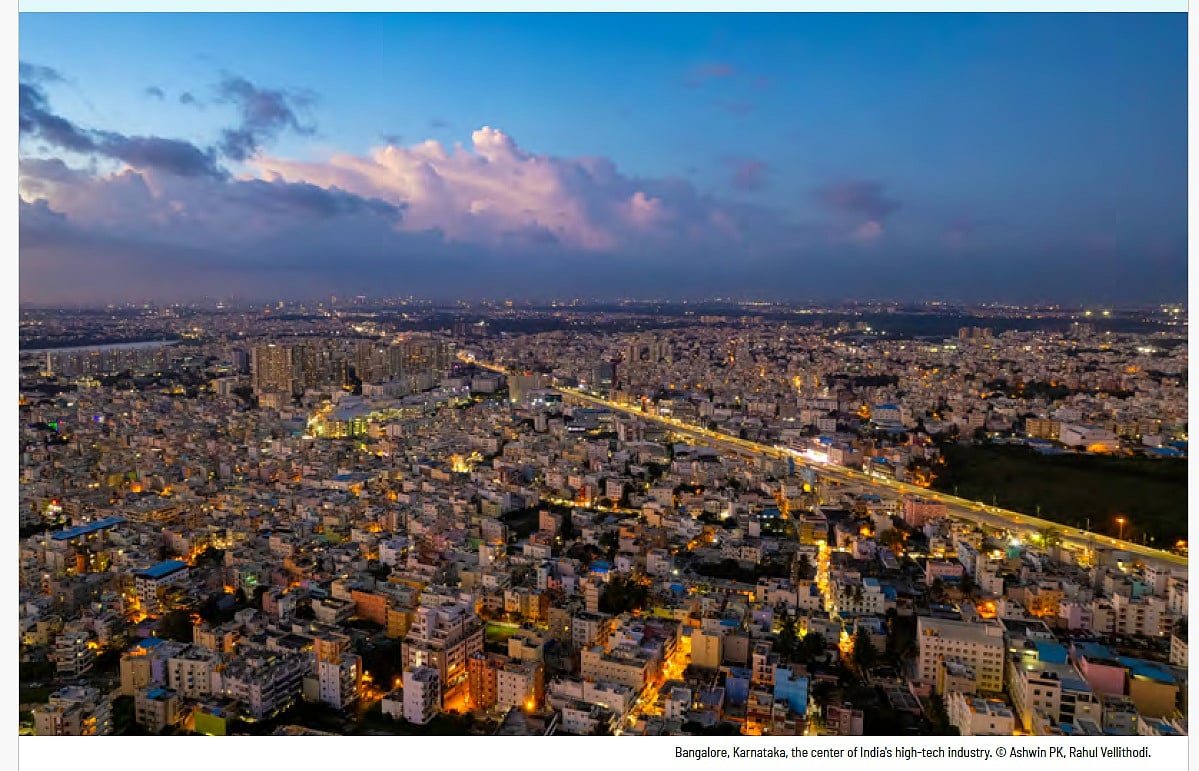India Must Invest $2.4 Trillion To Build Low-Carbon Infrastructure, Save Cities, Including Mumbai, From Weather Shocks
Timely interventions will help India’s cities continue to safeguard lives and properties, attract new businesses and jobs, and drive innovation. Cities hold tremendous potential as centers of economic growth with 70% of new jobs coming from cities by 2030.

File Image |
MUMBAI: India must invest over $2.4 trillion by 2050 to meet the need for new, resilient, and low-carbon infrastructure and services in cities, the World Bank said on Tuesday.
The private sector’s role will be critical in meeting these, often, unpredictable investments.
With India’s urban population expected to almost double by 2050 to 951 million, more than 144 million new homes will be needed by 2070, the World Bank said in a report prepared in close collaboration with India’s Ministry of Housing and Urban Affairs.
ALSO READ
“At the same time, intense heat waves and urban heat island effects are already causing temperatures in city centers to rise by over 3-4 degrees over surrounding areas. The rapid growth of built-up areas is also reducing cities’ capacity to absorb storm water, making them more vulnerable to floods,” official sources from the World Bank told The Free Press Journal.
The report cites how several cities in India are already taking urgent steps to build resilience.
Ahmedabad has developed a ‘Heat Action Plan’ model which aims to strengthen early warning systems, improve healthcare readiness, increase green cover and shift work schedules for outdoor laborers.
Kolkata has adopted a city-level flood forecasting and warning system.
Indore has invested in a modern solid waste management system, improving cleanliness and supporting green jobs. Chennai has adopted a climate action plan based on thorough risk assessment and targeting both adaptation and low-carbon growth.
Concentrating on areas where large climate impacts and future urbanization are expected, many ‘hotspots’ have been identified.
These hotspots primarily include cities in the south of Tamil Nadu, the north of Madhya Pradesh and Chhattisgarh, the Khandesh and Marathwada regions of Maharashtra, and parts of Karnataka. Another hotspot of coastal flood risk is in the coastal area around Mumbai.
The new report, which studied 24 Indian cities, with a special focus on Chennai, Indore, New Delhi, Lucknow, Surat and Thiruvananthapuram, finds that timely adaptation can avert billions of dollars of annual losses from future weather-related shocks.
For example, annual pluvial flood-related losses can be averted and can amount to $5 billion by 2030, and $30 billion by 2070. Investments in adaptation will also save over 130,000 lives from extreme heat impacts by 2050.
With over 50% of the urban infrastructure required for 2050 still to be built, India has a critical opportunity to drive resilient urban infrastructure development, the report said.
Indian cities hold tremendous potential as centers of economic growth with 70 percent of new jobs coming from cities by 2030. However, timely action is needed for cities to deal with impacts from extreme weather events and avert billions of dollars in future losses.
“The imperative for India to build resilient cities at scale is clear. By investing in more green and resilient urban development—including housing, transport, and municipal services – cities can better mitigate extreme heat conditions and urban floods, and continue to grow and create jobs,” said Auguste Tano Kouamé, World Bank Country Director.
To urgently help Indian cities and support vulnerable populations, the report outlines key recommendations: Implement programs to address extreme urban heat and flooding, including better regulation of stormwater, green spaces, installation of cool roofs, and effective early warning systems; invest in resilient infrastructure and municipal services, energy efficient and resilient housing, modernize solid waste management, and make urban transport flood resilient; and improve access to urban finance through better private sector engagement.
“Many Indian cities are showing the way to improve adaptation measures, benefit from good practices and fast track actions towards resilient urban growth,” said Asmita Tiwari and Natsuko Kikutake, co-authors of the report. “Timely interventions will help India’s cities continue to safeguard lives and properties, attract new businesses and jobs, and drive innovation.”
RECENT STORIES
-
-
-
-
-